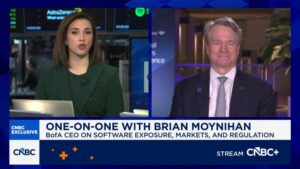The September jobs report released Friday showed the U.S. economy had the smallest gain in jobs of the year, adding a fewer-than-anticipated 194,000 jobs, while the unemployment rate dropped to 4.8% from 5.1%.
Economists surveyed by the Wall Street Journal had expected a gain of 500,000 jobs. The unemployment rate was forecast to slip to 5.1%.
Below are initial reactions from analysts and economists, as U.S. stocks
SPX,
DJIA,
traded mostly lower in the wake of the data on nonfarm payrolls.
- “In short, not as disappointing as suggested by the 194,000 headline number. While the rate of increase in employment has slowed relative to earlier in the summer, likely due in part at least to fallout from the latest COVID wave, the pace is likely still sufficient for Fed officials to follow through on plans to announce tapering at the November FOMC meeting.” Jim O’Sullivan, chief U.S. macro strategist at TD Securities.
- “This is an important reality-check moment in our road to recovery. We know that today there are 11million open jobs and 8 million people looking for work. Employers across the country are getting increasingly creative when it comes to attracting and retaining skilled workers. It’s no longer enough that employers are adjusting wages; they’ve got to address health and well-being, safety, and flexibility too. We are seeing a long term change in the workforce. What people want from work and life has changed – as employers we need to make the workplace attractive enough to bring people back in.” – Becky Frankiewicz, president of ManpowerGroup North America.
- “While the FOMC is still expected to move forward with tapering at the end of 2021, the path for 2022 is murkier as the Fed attempts to balance conflicting objectives of price stability and full employment. For the Biden Administration, this is an emerging emergency situation which requires a top tier, forceful policy pivot to address a broad range of issues on the supply side of the economy,” said Brian Bethune, professor of practice at Boston College.
- “The low bar for the Fed to announce QE tapering was surpassed. And, with debt ceiling shenanigans pushed back until December 3, the road is clear for an announcement at the November FOMC meeting.” Lydia Boussour, economist at Oxford Economics.
This post was originally published on Market Watch






